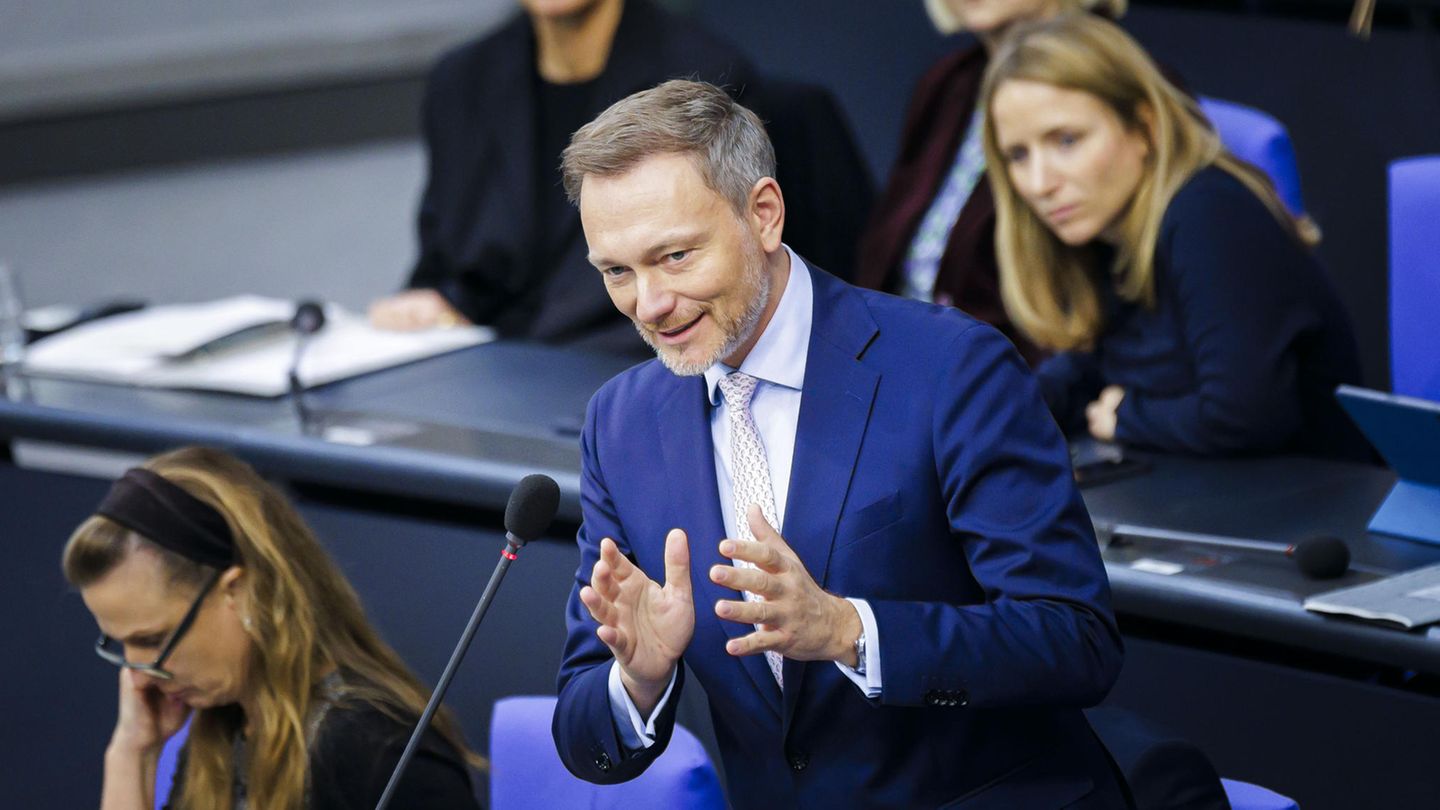analysis
The federal government spends almost 500 billion euros in its budget. But a new study shows that only a fraction contributes to the future of Germany.
This article is adapted from the business magazine Capital and is available here for ten days. Afterwards it will only be available to read at again. Capital belongs like that star to RTL Germany.
There is nothing politicians like to talk about more than the future, and this also applies to Federal Finance Minister Christian Lindner (FDP). The supplementary budget for 2023, for example, which the traffic light passed through the Bundestag just a few weeks ago, secures “future investments and important projects from the coalition,” Lindner announced full-bodiedly. What the big words are worth in concrete numbers, however.
Accordingly, in 2023 only one in five euros spent by the federal government contributed to the future of the country. This is the result of a new study in which the ZEW researchers determined the so-called future quota from the federal budget figures: Last year it was exactly 20 percent – that was a slight decrease compared to the previous year in 2022. The “future quota” records this all federal expenditure that contributes to the future viability of the state: These can be investments in more modern infrastructure such as new roads or railways, as well as better internet access, mobile phone networks or higher education expenditure.
20 percent of several hundred billion euros – that doesn’t sound like much, and it isn’t much, especially since the 20 percent was only achieved in the “broad definition” of the quota and including the so-called special funds. Since the Corona crisis, these special funds have increasingly concealed new shadow budgets with which the federal government has financed important acute tasks through additional debt: for example for the reconstruction after the Ahr flood, for the expansion of the digital infrastructure, the upgrading of the Bundeswehr and for the so-called Climate and transformation fund, which is intended to finance investments in the energy transition. According to ZEW, the expenditure from these four special budgets amounted to a “future quota” of 44 to 68 percent – with the regular federal budget of 476 billion euros in 2023 alone, the quota would have been well under a fifth.
Large expenditure items hardly make investments possible
The results also shed light on the state of the federal budget following the Federal Constitutional Court’s ruling in November last year. At that time, the Karlsruhe judges ruled that debt-financed additional budgets violated the Basic Law and that all planned expenses for a year could only be covered by the regular budget – in compliance with the debt brake. Because the traffic light then had to save a low double-digit billion amount in the short term, the ruling triggered weeks of haggling and brought the coalition to the brink of failure.
“The end of debt-financed secondary budgets after the Federal Constitutional Court’s ruling therefore represents a major challenge,” says ZEW researcher Friedrich Heinemann. Because with today’s rules for the federal budget and the many legally defined large spending blocks, for example for pensions, social services, families and health, major changes and more investments in the future are hardly possible.
The economists’ data is therefore likely to fuel the coming debate about the 2025 federal budget. Federal Finance Minister Lindner must present a first draft of next year’s budget in the coming weeks. Compared to the old medium-term budget planning before the Karlsruhe ruling, the government has to make significant savings again; we are talking about an amount between 15 and 30 billion euros. There are “no additional financial resources to be distributed,” Lindner wrote to his cabinet colleagues a few days ago at the opening of the budget talks.
Debt brake reform? Unlikely
The ZEW scientists are therefore once again suggesting a reform of the debt brake in the Basic Law. Specifically, they suggest easing the taking on of new debt in the future, but linking the additional expenditure that this would allow “with the condition that the debt taken on must demonstrate a precisely quantified expansion of the future quota.”
However, such a reform is currently extremely unlikely: before the federal election next year, both the Union and the FDP want to profile themselves as guardians of solid state finances and reject any reform of the debt rule in the Basic Law – although there are numerous critics of the current rules even within their own ranks . The SPD and the Greens, on the other hand, are open to reform.
Source: Stern




